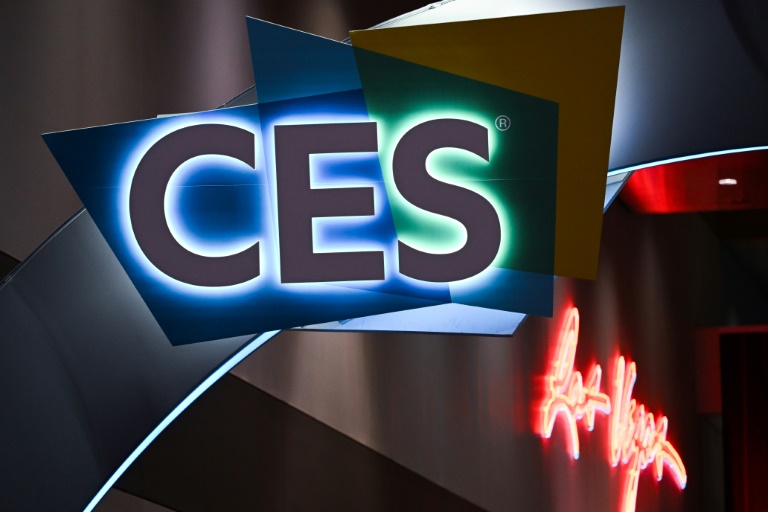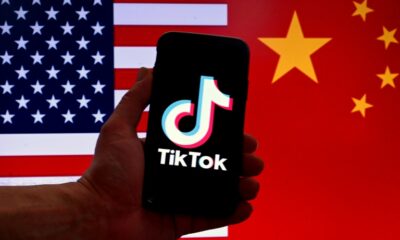The annual tech industry fair known as the Consumer Electronics Show is regaining momentum after the pandemic, with artificial intelligence (AI) infusing everything from bicycles to baby bottles.
The gadget extravaganza referred to as CES formally kicks off Tuesday in Las Vegas, boasting more than 3,500 exhibitors and expecting some 130,000 visitors.
CES exhibitor and attendee numbers have jumped each year since the Covid-19 pandemic caused it to be an online-only event in 2021.
“After Covid some people thought they were not going back,” Creative Strategies analyst Carolina Milanesi told AFP.
“But, smaller companies that don’t have the brand power to get attention they deserve at their own events are deciding to be part of the conversation at CES.”
While the show is increasingly a showcase for startups, big brands such as Amazon, Google, Intel, Netflix, Samsung, Sony and TikTok will also be there next week, according to the Consumer Technology Association organizing the event.
– AI abounds –
Analysts expect it to be the year of AI when it comes to product pitches at CES.
“I do not suggest anyone create a game at CES to take a drink any time someone says AI, because you will be drunk before CES even starts,” Techsponential analyst Avi Greengart quipped.
Models on which AI is built have improved dramatically since last CES and the debut of OpenAI’s ChatGPT, and they are being applied in meaningful ways for consumers, according to Greengart.
“There is little doubt that the tech ecosystem gathering in Las Vegas will focus on AI everywhere and on-device generative AI,” said Forrester principal analyst Thomas Husson.
“The biggest theme will be about how AI can power new invisible and immersive consumer experiences.”
Innovations on display at CES will include technology-packed glasses for the blind from Lumen that let wearers know where it is safe to walk, even avoiding puddles, according to the startup.
Meanwhile, Shift Robotics will let people try out its latest Moonwalkers shoes that let people walk at a running pace without breaking a sweat.
AI will be featured in homes, sound systems, automobiles, televisions, baby bottles, beds and more, according to pitches sent out by exhibitors.
“There is going to be a lot of AI and AI-washing similar to the green washing we saw a few years ago,” Milanesi said, noting that not all products will deliver.
– Car tech galore –
Eye-popping televisions from LG and others will be on display, along with automotive innovations as cars and the technology built into them are showcased.
“CES has become an automotive show,” analyst Greengart told AFP.
“Cars have become rolling software platforms, or consumer electronics with wheels, and you can be sure there are going to be a lot of announcements.”
Chip makers including Intel will spotlight their latest semiconductors designed to handle complex computing tasks. Nvidia plans a special address at CES on Monday focusing on consumer technologies and robotics.
Nvidia chips are in hot demand by companies looking to power generative AI.
Greengart expects health to be among the big CES themes, with sensors built into mirrors, wearables and more to measure vital signs.
L’Oreal chief executive Nicolas Hieronimus will be among the CES keynote speakers for the first time, joining peers from Walmart, Qualcomm and Siemens on the show roster.
Snap co-founder and chief Evan Spiegel will take part in a panel discussion on brand loyalty.
– Sustainable progress? –
With the recent release of Meta’s Quest 3 virtual reality headset and with Apple expected to hit the market early this year with its Vision Pro, a lot of small companies at CES are expected to show off gear to compete in the “spatial computing” and mixed-reality market.
Sustainability promises to be a more meaningful trend at CES than in the past as more companies adopt practices such as environmentally friendly packaging and using recycled materials in products and rechargeable batteries, according to analysts.
“Some of the sustainability gains are starting to get real,” Greengart said.

 Business4 months ago
Business4 months ago
 Business5 months ago
Business5 months ago
 Events3 months ago
Events3 months ago
 People4 months ago
People4 months ago
 Events6 months ago
Events6 months ago
















